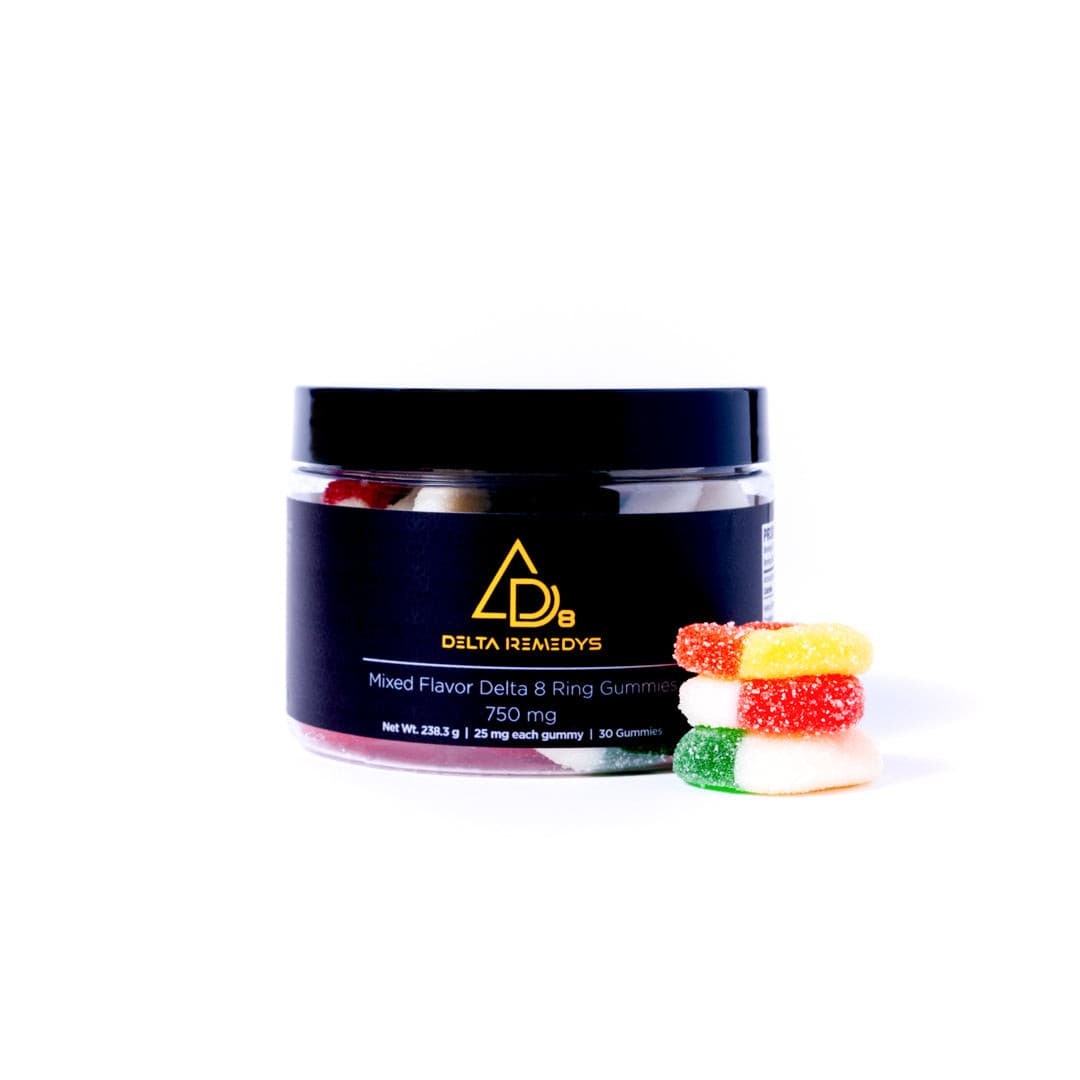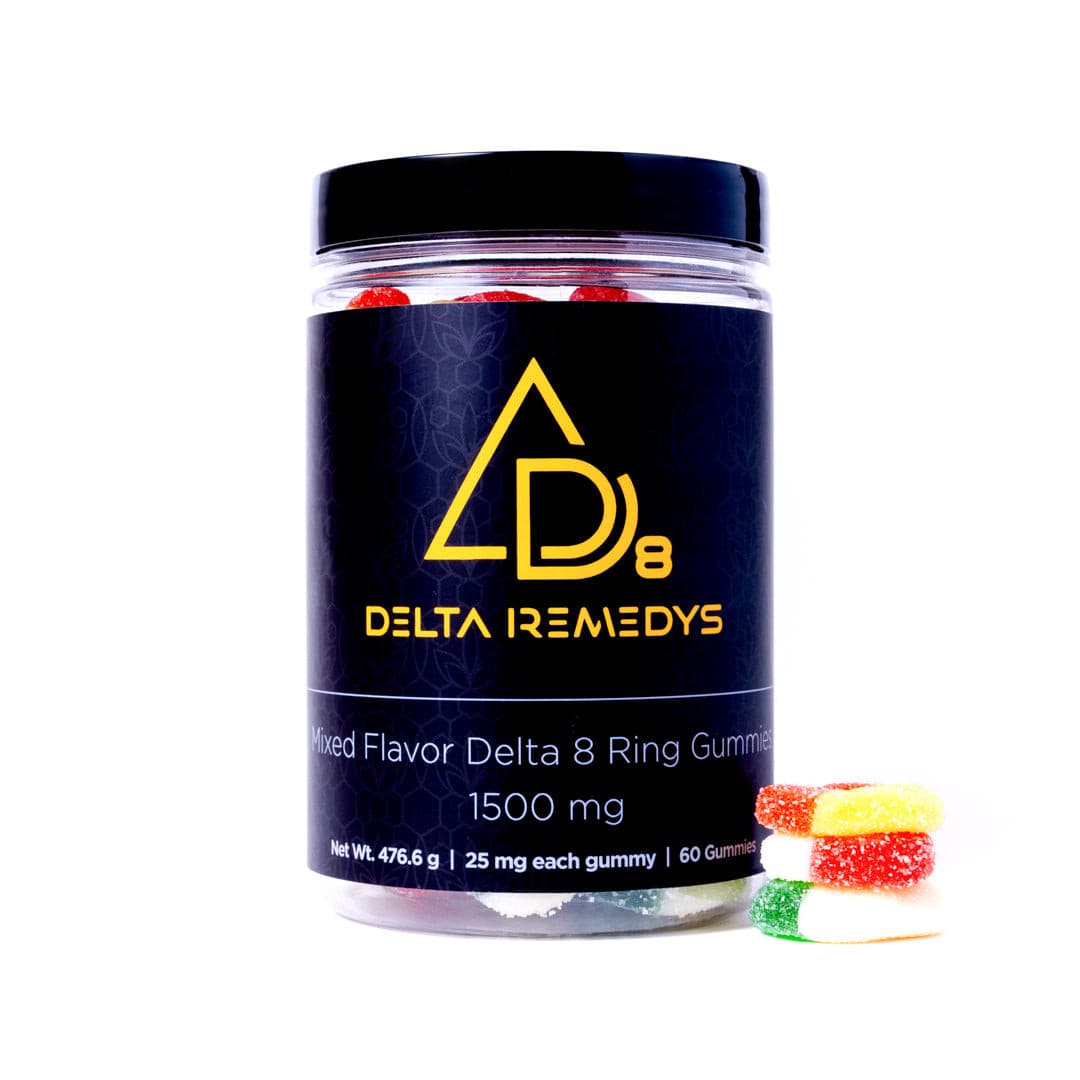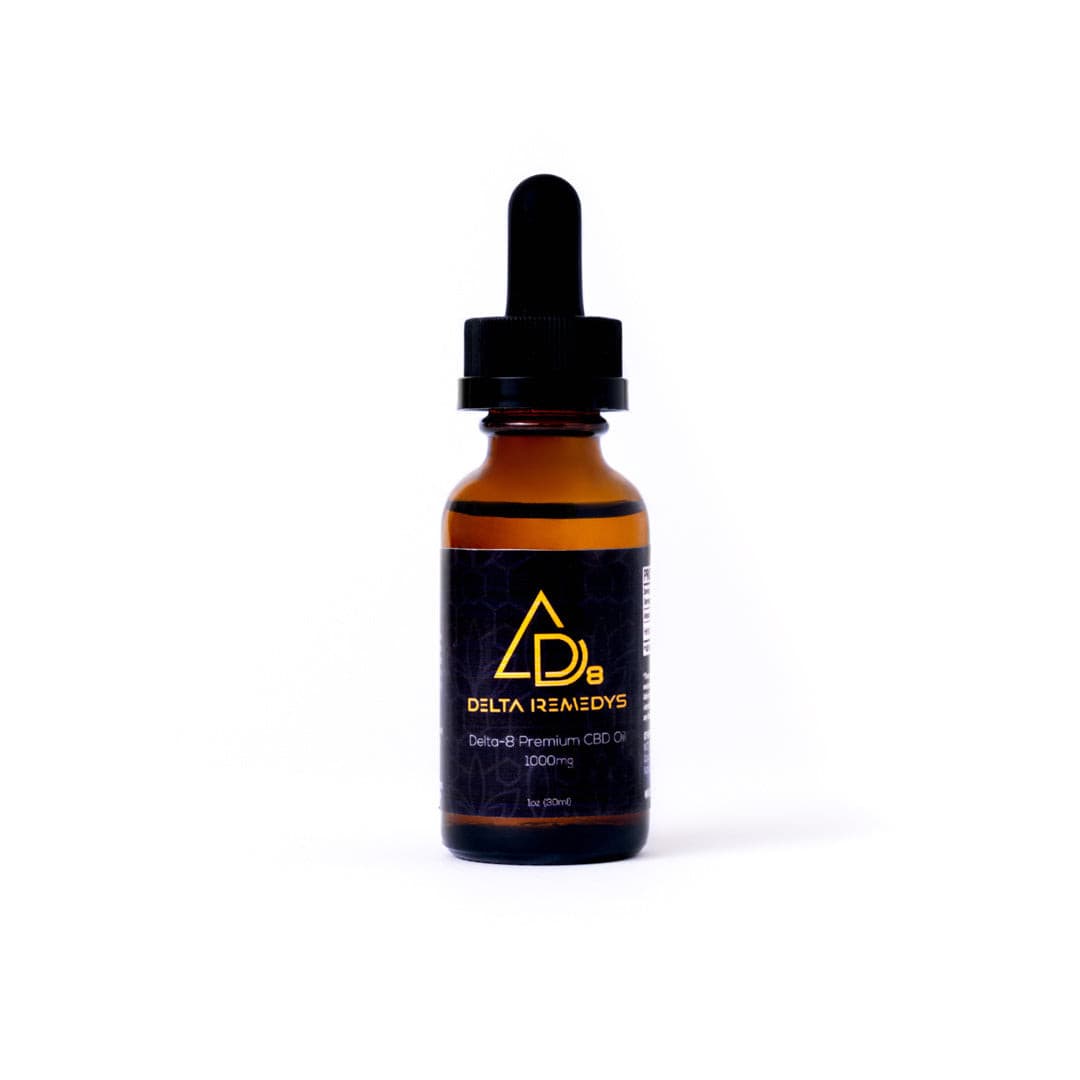You know what they say: health is wealth. And knowledge is power. That’s why reading up on the latest health statistics is so important.
There’s a growing emphasis on health and wellness lately. This could be due to the global pandemic, the advancement of technology, or maybe because we’re in the information age, where health and wellness information is readily available at the click or tap of a button.
Whatever the case, people are looking for better ways to improve (and then maintain) their overall health and well-being.
In this article, we’ll explore some of the top health trends and statistics you need to know in 2024 to start taking control of your overall wellness.
Health and wellness trends
What trends will drive health and wellness in 2024? Let’s peel back the curtains before diving into the must-know health statistics.
Holistic health
More consumers are shifting their focus towards holistic health approaches that consider the whole person—mind, body, and spirit. Practices like acupuncture, Ayurveda, and naturopathy are becoming more popular as people are starting to use them alongside conventional medicine.
Mental wellness and resilience building
Many people are placing a stronger emphasis on mental health, with an increased focus on building emotional resilience and coping strategies.
Thanks to the apps and platforms that are normalizing and making them more accessible, this includes practices like mindfulness, meditation, and therapy.
Digital health and telemedicine
Digital health tools, such as telemedicine, wearable fitness trackers, and health monitoring apps, allow people to manage their health in a convenient, highly accessible way. They can continuously monitor their vital signs, activity levels, åand overall health.
Wellness travel and retreats
Wellness travel combines relaxation with health-focused activities like yoga, meditation, and nature therapy. Wellness retreats offer the opportunity to disconnect from daily stressors and focus on mental and physical well-being.
Health statistics you need to know
Here are the top health statistics that you need to know to (1) be informed about the most common health conditions and (2) learn what you can do today (or in the future) to lower your risk of developing these conditions.
1. Having a dog can reduce the risk of cardiovascular death by 31 (University of Toronto Leadership Sinai Centre for Diabetes)
2. Stress can more than double women’s risk of type 2 diabetes. (University of Newcastle)
3. Drinking coffee can reduce depression risk by up to one-third. (Harvard Medical School)
4. Getting at least 30 minutes of physical activity can help improve sleep quality. (Johns Hopkins Medicine)
5. Getting adequate sleep (7 or more hours per night) helps reduce the risk of many diseases, including high blood pressure, stroke, diabetes, and heart disease (Harvard Medical School)
6. The global life expectancy at birth decreased from 72.8 years in 2019 to 71 years in 2021 – the largest two-year decline in a century. (Journal of Global Health)
7. For adults 20 and older, the rate of obesity rose to 41.9% between 2017 and March 2020. (Centers for Disease Control and Prevention). This is a huge jump from 30.5% in 2000 (National Center for Health Statistics).
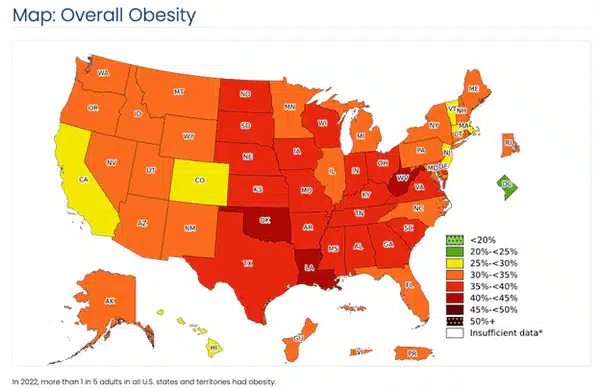
8. Chronic disease affects 6 in 10 adults. And about 4 in 10 adults live with multiple chronic diseases. (Centers for Disease Control and Prevention)
9. Lifestyle risk factors for chronic diseases in the U.S. encompass tobacco use, inadequate nutrition, insufficient physical activity, and excessive alcohol consumption. (Centers for Disease Control and Prevention)
10. Noncommunicable diseases (NCDs) account for 74% of all deaths globally. NCDs are conditions that aren’t transmittable from person to person. (World Health Organization)
11. Cardiovascular diseases account for most NCD deaths (17.9 million people annually). A close second is cancer (9.3 million). Then, it’s chronic respiratory diseases (4.1 million) and diabetes (2.1 million kidney disease deaths caused by diabetes). (World Health Organization)
12. Tobacco use, physical inactivity, excessive alcohol use, unhealthy diets, and air pollution can all increase the risk of dying from an NCD. (Global Burden of Disease Collaborative Network)
13. 31% of adults and 80% of adolescents don’t meet the recommended levels of physical activity. (The Lancet Global Health)
14. Smoking tobacco is the leading cause of preventable death in the United States. (Centers for Disease Control and Prevention) It’s responsible for over 8 million deaths a year globally. 1.3 million of those deaths are a result of non-smokers’ exposure to secondhand smoke. (U.S. Department of Health and Human Services)
15. Stroke ranks as the second leading cause of death and the third leading cause of disability globally. (Journal of the American Heart Association)
16. In the United States, someone has a stroke every 40 seconds. Every 3 minutes and 11 seconds, someone dies of a stroke. (American Heart Association)
Mental health statistics
17. 1 in 5 U.S. adults experience mental issues each year. (Substance Abuse and Mental Health Services Administration)
18. In 2021, 1 in 7 youth aged 10 through 19 experienced a mental health disorder globally. (Institute of Health Metrics and Evaluation)
19. About 280 million people worldwide, or about 3.8% of the global population, experience depression. This includes about 5% of the world’s adults. (World Health Organization)
20. In 2021, at least 21 million adults in the U.S. experienced a major depressive episode. (National Survey on Drug Use and Health)
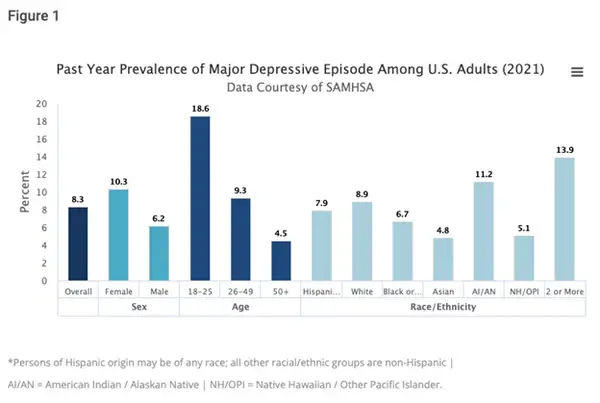
21. Depression is the leading cause of disability worldwide. (World Health Organization)
22. About 60% of people who have depression don’t seek professional help. (Thomas Jefferson University Hospital)
23. Anxiety disorders are the most common mental illnesses in the world. It affects over 40 million adults, about 19% of the U.S. population. (Harvard Medical School)
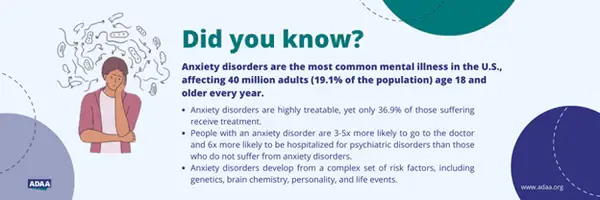
24. Globally, about 301 million people have an anxiety disorder. This accounts for about 4% of the global population. (Shandong University)
25. Young people are more likely than older adults to experience symptoms of depression or anxiety. (Household Pulse Survey)
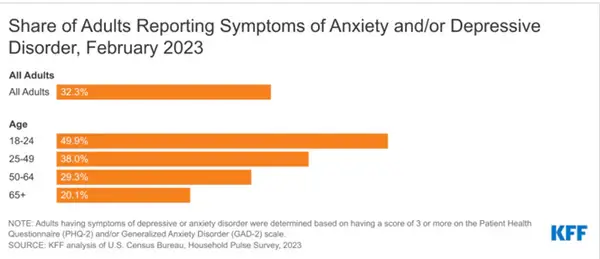
26. People with chronic diseases, such as diabetes, cardiovascular disease, and chronic respiratory conditions, are at a higher risk of developing mental health disorders. (U.S. Department of Health and Human Services)
27. One study found that people with severe mental illness are more likely to develop multiple chronic physical health conditions. (BMJ Mental Health)
28. According to the 2024 Healthy Minds Poll, 37% of Americans rated their mental health as fair or poor, up from 31% the year before. (American Psychiatric Association)
29. The same survey revealed that more than 43% of Americans feel more anxious this year (2024) than last year. This was a significant jump from 37% the previous year (2023). (American Psychiatric Association)
30. In 2021, 33.5% of U.S. adults with mental illness also experienced substance use disorder. (National Survey on Drug Use and Health)
Top wellness stats
Below are top statistics about overall wellness to give you a good idea of what’s going on in the wellness industry.
31. 50% of U.S. consumers say wellness is a top priority in their day-to-day lives. (McKinsey)
32. 50% of Americans claim they actively try to eat healthy. (Statista Consumer Insights)
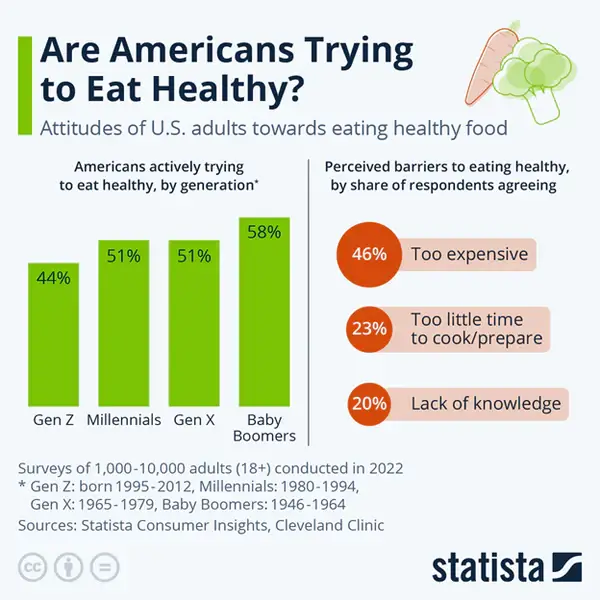
33. 46% of American adults say that cost is a major barrier to eating healthy foods. (Cleveland Clinic)
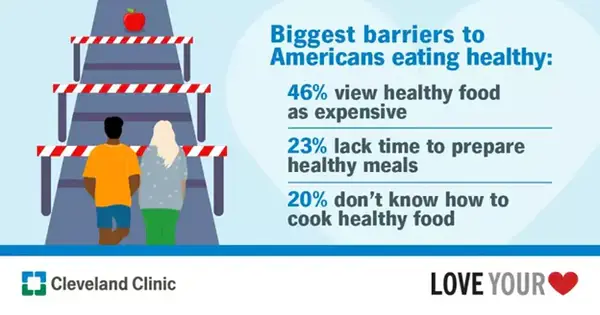
34. 70% of the U.S. population consumes plant-based food (Plant-Based Foods Association)
35. 33.5% of U.S. adults say they don’t get adequate sleep. (United Health Foundation)
36. The use of health apps grew by 25% during the COVID-19 pandemic. (Organisation for the Review of Care and Health Applications)
37. More consumers are starting to be proactive about their health, with the global preventive healthcare technologies and services market size being valued at $243 billion in 2022. Grand View Research predicts it could grow at a compound annual growth (CAGR) of 11.8% by 2030. (Grand View Research)
38. 39% of consumers want to spend more time outdoors. (Mind Body Wellness Index) Studies have shown that greenspace exposure is linked to many health benefits. (Norwich Medical School)
39. 80% of Millennials consider health benefits when picking out foods, compared to 64% of Baby Boomers. (International Food Information Council)
40. According to a survey of 2,000 adults, Gen Z was the most worried about their health, affecting their ability to experience everything they want in life, compared to other generations. (Know Diabetes by Heart)
Alternative medicine trends
Because consumers are becoming more informed, they’re now discovering alternative treatments for different health conditions.
Here are the top trends:
41. In 2021, around 24% of adults in the U.S. used herbal medicines, supplements, or teas to treat health problems. 10% used non-prescribed drugs, such as marijuana and psychedelics, as alternative medicines. (Statista Consumer Insights)
42. In 2022, U.S. adults used cannabidiol (CBD) products to reduce stress (62%), relieve pain (60%), improve sleep quality (58%), alleviate anxiety (51%), or follow doctor’s recommendations (48%). (Statista Consumer Insights)
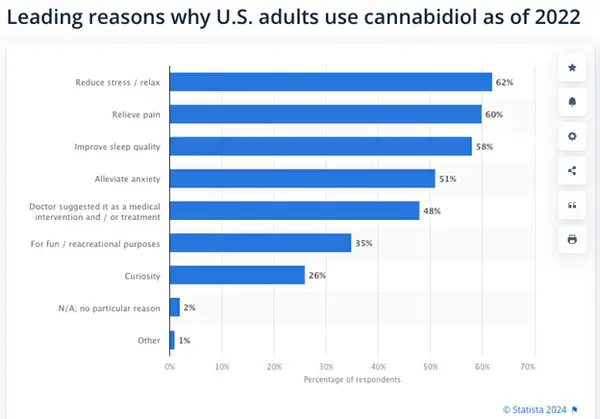
43. The most preferred types of CBD products in the United States are gummies (58%), capsules (55%), oils/tinctures (55%), lotions (53%), topicals/serums (42%), vapes (32%), and flowers (16%). (Statista Consumer Insights)
44. 60% of U.S. adults who have tried a CBD product believe it offers some medicinal benefits. (Forbes Health)
45. Delta-8 THC, a type of cannabinoid, offers many health benefits. It may help with relaxation, euphoria, and pain relief. (Journal of Cannabis Research) https://deltaremedys.com/blogs/news/delta-8-vs-cbd-is-one-better-than-the-other
46. Due to its calming effects, Delta-8 can help alleviate sleep issues and improve sleep quality. (Journal of Cannabis Research)
Health benefits of using CBD products

With the constantly evolving health and wellness market, new trends and products are emerging. Many of them aim to meet the growing demand for natural health solutions.
Among them are CBD (cannabidiol) products, which are known for their many health benefits, from pain relief to anxiety reduction. In fact, choosing the right edibles can help you manage anxiety.
Coming from the cannabis plant. CBD is a non-psychoactive compound present in a wide range of products, including gummies, oils, creams, and capsules.
While CBD is a great choice for people who want to enhance overall well-being, many compare it to other health products like traditional supplements, essential oils, and over-the-counter (OTC) medications.
Let’s examine CBD products and how they compare to related products that offer similar health benefits.
Pain relief
You may have heard that pain relief is one of CBD’s many benefits. It interacts with the endocannabinoid system (ECS) to help manage pain, according to research by the California Institute of Behavioral Neurosciences and Psychology. People often use it to alleviate chronic pain conditions, such as arthritis and neuropathic pain.
Many people choose CBD because it may have fewer side effects than some traditional pain medications.
Alternatives to CBD for pain relief include products like turmeric. According to a study published in the peer-reviewed journal Drug Design, Development, and Therapy, turmeric contains curcumin, a compound with strong anti-inflammatory effects.
It also contains omega-3 fatty acids, which can help reduce inflammation. Essential oils like lavender and peppermint are also popular. These oils are used topically for their analgesic properties.
However, while these alternatives may be effective, their potency and onset of relief may vary.
Anxiety and stress management
CBD has become a popular go-to for easing anxiety and stress. Researchers from Columbia University and the New York State Psychiatric Institute showed that it interacts with the serotonin in the brain, which helps regulate mood.
Many people prefer CBD over traditional anti-anxiety medications because it’s natural and has a lower risk of dependency, per a study in the Journal of Drug and Alcohol Dependence.
Other natural remedies for anxiety are herbal supplements like valerian root, kava, and ashwagandha, which claim to help promote relaxation and reduce stress. However, there is no evidence that shows the long-term safety of using these supplements.
Conversely, the World Health Organization reports that CBD has a favorable safety profile.
Improving sleep quality
Many people turn to CBD to help them sleep better because it can help address underlying issues like anxiety, pain, or stress that disrupt sleep.
A systematic review in Cannabis and Cannabinoid Research reveals that people who use CBD products report having more restful sleep and reduced symptoms of insomnia without the grogginess associated with some sleep medications.
Melatonin supplements are a popular alternative for regulating sleep cycles and improving sleep quality. A study in Phytotherapy Research found that herbal teas like chamomile can also promote relaxation and support sleep. These alternatives can be effective, but their sleep-inducing effects may not be as strong as those of CBD.
Anti-inflammatory properties
Because it has anti-inflammatory properties (confirmed by Pulmonary Pharmacology & Therapeutics), many people use CBD to manage inflammation-related conditions, such as arthritis or inflammatory bowel disease (IBD). It may help reduce inflammation by interacting with the immune system and endocannabinoid receptors.
Alternatives include curcumin supplements and ginger, which both provide strong anti-inflammatory effects. Green tea extract, quercetin, and essential oils like eucalyptus and frankincense may also help reduce inflammation.
However, their effectiveness depends on what condition you’re treating. On the other hand, the anti-inflammatory properties of CBD treat a wide range of conditions that may cause inflammation. In fact, Delta 8 gummies are strong enough to reduce inflammation.
Mood enhancement and cognitive function
CBD may help with the self-treatment of depression, like boosting mood and cognitive function by interacting with neurotransmitters in the brain, per the Frontiers in Psychiatry.
St. John’s Wort and SAM-e are popular herbal supplements that can manage mild to moderate depression, while omega-3 fatty acids may help support brain health and cognitive function.
St. John’s Wort is a natural plant with yellow flowers that Europeans used to treat various health conditions. It dates back to ancient Greece. Today, research in StatPearls reveals that people use it to treat mild to moderate depression. However, it interacts with many medications and can cause serious side effects.
SAM-e is a molecule that the body naturally produces. However, you can take a supplement to boost your levels of SAM-e, which many tout as an effective remedy for depression, as revealed by Progress in Neuro-Psychopharmacology and Biological Psychiatry. However, more evidence is necessary to fully understand SAM-e’s effectiveness in treating depression symptoms.
Skin health and topical benefits
A recent study by The South African Institute of Dermatology reveals that topical CBD products, such as balms and creams, can help:
- Treat various skin conditions like acne
- Alleviate localized pain
- Reduce inflammation
How? It’s all thanks to their anti-inflammatory and antibacterial properties.
Tea tree oil, aloe vera, and calendula are popular natural remedies for skin issues due to their soothing, anti-inflammatory, and antibacterial properties. However, CBD tends to be more powerful as an ingredient.
For example, one study in the Journal of Applied Microbiology found that CBD is more effective as an antioxidant and requires a much lower concentration to achieve the same level of free radical inhibition as tea tree oil.
Take control of your wellness today
As the wellness industry continues to grow, it becomes clearer that health isn’t a one-size-fits-all concept (especially after reviewing these unique health statistics). CBD products and other natural alternatives are showing promise in improving health outcomes.
Technology, a higher focus on mental health, and increased access to information allow consumers to create tailored wellness routines that support their unique needs.
Looking for new and improved ways to boost your overall health?
Delta Remedys’ Delta-8 THC Gummies offer a natural and effective way to manage stress, enhance relaxation, and support overall wellness in your daily routine.


